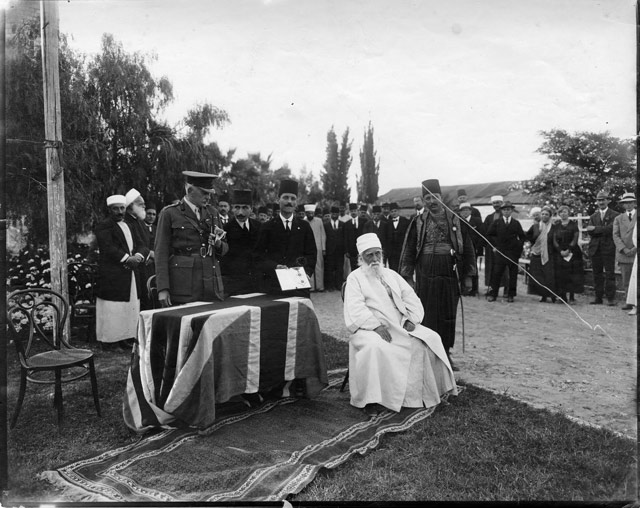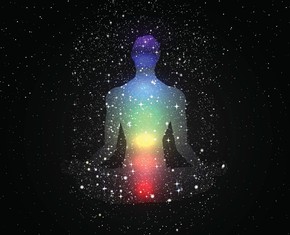The views expressed in our content reflect individual perspectives and do not represent the authoritative views of the Baha'i Faith.
Nothing can make our life, or the lives of other people, more beautiful than perpetual kindness. – Leo Tolstoy
One thing I know: the only ones among you who will be really happy are those who will have sought and found how to serve. – Albert Schweitzer
Work for the day of Universal Peace. Strive always that you may be united. Kindness and love in the path of service must be your means. – Abdu’l-Baha, Abdu’l-Baha in London, p. 121.
The Baha’i teachings extol service to humanity as the ultimate meaning-making activity. Baha’u’llah praised service to others, not in the subservient or demeaning way we sometimes think of servitude and servants, but on an exalted, expansive path of love for all humanity.
These teachings aren’t academic. Known as the ‘father of the poor’ for his service and advocacy on behalf of the downtrodden and oppressed, Baha’u’llah spent forty years in exile and in prison as a result of his progressive teachings. The British Empire knighted Abdu’l-Baha for feeding the hungry and helping the unfortunate, work he continued throughout his entire life. Baha’is try to pattern their lives after both Baha’u’llah and Abdu’l-Baha by serving others and fostering an ever-advancing civilization.
Because of those remarkably spiritual examples, the Baha’i teachings promote an ethic of service to humanity, and even elevate such selfless service to the state of worship:
Be ye loving fathers to the orphan, and a refuge to the helpless, and a treasury for the poor, and a cure for the ailing. Be the helpers of every victim of oppression, the patrons of the disadvantaged. Think ye at all times of rendering some service to the human race.
Briefly, all effort and exertion put forth by man from the fullness of his heart is worship, if it is prompted by the highest motives and the will to do service to humanity. This is worship: to serve mankind and to minister to the needs of the people. – Selections from the Writings of Abdu’l-Baha, p. 3; Paris Talks, pp. 176-177.
Does that sound incredibly difficult to do? This level of action and involvement in the lives of others may seem burdensome when you first consider it. After all, so many problems exist in the world–how can any one person possibly address them? Each of us has our own tests and trials–how can we find the time or energy to help other people with their difficulties?
Those persistent questions often come directly from our inner selves trying to protect their turf. Everyone who walks a spiritual path ultimately confronts these questions. They come from the self and the ego, and they show our altruistic, spiritual nature at work, attempting to overcome the inherent, immature selfishness each of us battles. Those inner battles give us a choice. If we follow the spiritual path it will lead us forward, allowing us to see who we really are, unmasking the self’s true desires.
This inner struggle centers on the Buddhist and the Baha’i idea that self is ultimately an illusion, which the mind clings to for security.
So when a seeker begins to ask those inner questions about altruism and other-directedness, it signifies progress. In fact, those questions begin to move us toward the attainment of a higher, more educated, less inwardly-focused point of view. When we ask ourselves those normal, self-protective, ego-guarding questions, it means the path we’re on has begun challenging our own soul to change. That’s why true compassion and kindness emerge in this valley–because we can identify and understand our individual selves, and then see what it takes to transcend them.
Maslow’s study of a group of adults who attained this altruistic stage of life—who he called “self-actualized” people–reveals an answer to these questions, and another secret of growth and maturation:
Self-actualizing subjects… have for human beings in general a deep feeling of identification, sympathy and affection… Because of this they have a genuine desire to help the human race. It is as if they were all members of a single family… What they settled down to as a group was an accepting, calm, good-humored everyday effort to improve the culture, usually from within, rather than to reject it wholly and fight it from without. – Motivation and Personality, pp. 165, 173.
When your focus looks outward, that sad, unhappy and depressed inward focus gradually diminishes and dwindles. More than just the simple nostrum of taking our mind off our own troubles, this outward focus means that we humans are innately gregarious, loving beings. Failing to truly use that capacity to love endangers our mental and spiritual health. Once again, needs equal capacities. When we need to love others, our capacity to love yearns to express itself. So altruistic, selfless service creates health, and the denial of our oneness and interdependence makes us unhealthy. In other words, other-directedness unearths human potential:
For all beings are connected together like a chain; and reciprocal help, assistance and interaction belonging to the properties of things are the causes of the existence, development and growth of created beings. – Abdu’l-Baha, Some Answered Questions, pp. 178-179.

















Comments
Sign in or create an account
Continue with Googleor